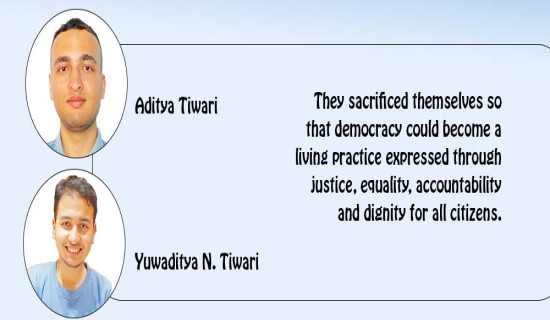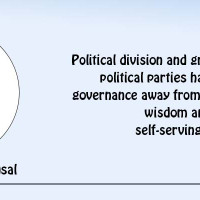- Friday, 30 January 2026
Innovation In Education
Dixya Poudel
The education sector in the Kathmandu valley has recently seen a few changes. First off is the introduction of book-free Friday and second is the decision to award scholarships to Grade 11 students of private schools. These decisions have been made under the governance of a young and dynamic political leader, Balen Shah, who is the mayor of Kathmandu. Could the nation be gearing towards an improvement over its rather traditional and mostly outmoded education system?
When it comes to Nepali education system, there are two main institutions: private educational institutions and public educational institutes. Private schools, although quite expensive are known to impart a higher quality education as compared to public schools. However, the majority of private schools aren’t on a par with international standards. Schooling in Nepal has largely been limited to rote-learning which tends to weigh heavily on the young, growing minds. The courses are based on theories and are mostly the relics of an ailing educational system.
It isn’t thus surprising that critics have been decrying the outmoded education system that is prevalent in schools in the country. Therefore, the education system requires a major overhaul which is why it is laudable that Kathmandu Metropolitan City has geared up with several innovative changes.
Textbook-free Friday has already begun in schools in Kathmandu with positive results. Students no longer have to carry hefty bags crammed with textbooks on Friday, instead, they can participate in extracurricular activities and learn essential life skills. Students from Grade 9-12 can now learn from a variety of courses which include agriculture and urban farming, cosmetology, fashion design and clothing, carpentry and wood-carving, electrical wiring, culinary arts, stitching, sculpture, disaster preparedness, plumbing, and mobile and electronic repairs.
Likewise, students up to Grade 8 can participate in extracurricular activities such as essay writing, music, poem recitation and gardening. Thus on Fridays, instead of memorising facts and information from their textbooks, students will get applied and practical lessons. It is certainly a relief for students who often get weary of continuous studying that too without adequate breaks. They are now able to discover new hobbies that could lead to their versatile development.
Next, the upcoming plan to provide scholarships to Grade 11 students of private schools is admirable as well. Those who are conscientious can now compete for scholarships so that their education won’t dent the family budgets. Not only will selected students receive scholarships, it will also be a precedent for up-and-coming students. And private higher secondary schools will be reachable to bright students who are otherwise at a financial disadvantage. The role of education in shaping a student’s future is irrefutable. It provides nations with human resources that are capable of competing nationally and internationally while also contributing to the nation’s economy.
Balen Shah’s new steps towards bringing reforms in education have been applauded in the social media by the public. Even though there has been criticism over his unilateral decisions, these reforms are certain to improve the educational system. Already parents and teachers are singing praises of these new policies in education while the students are overjoyed. The current mayor of Kathmandu further has in his jurisdiction to bridge the gap between private and public schools in the valley which could be an example to the entire nation.

















